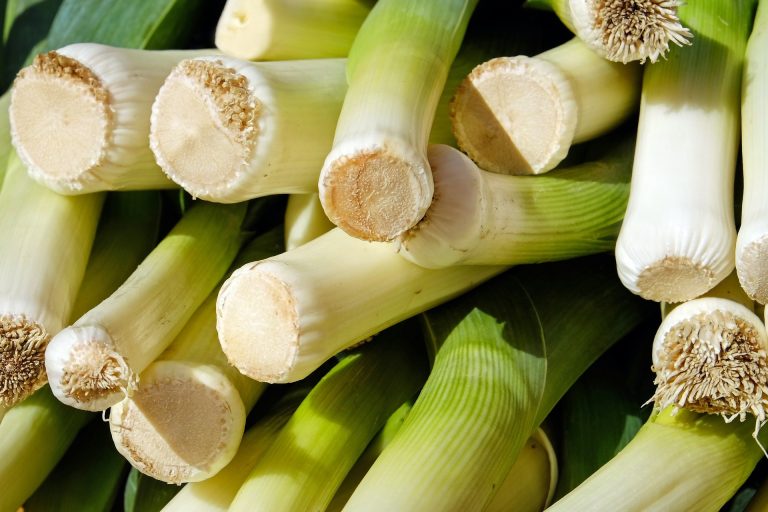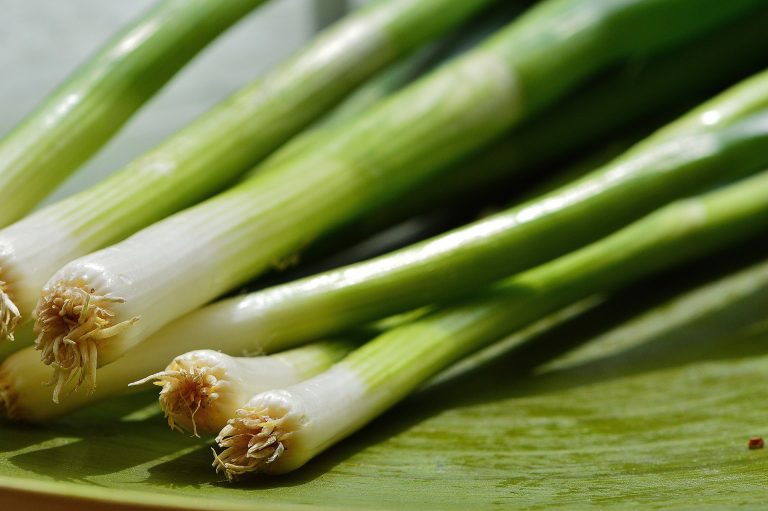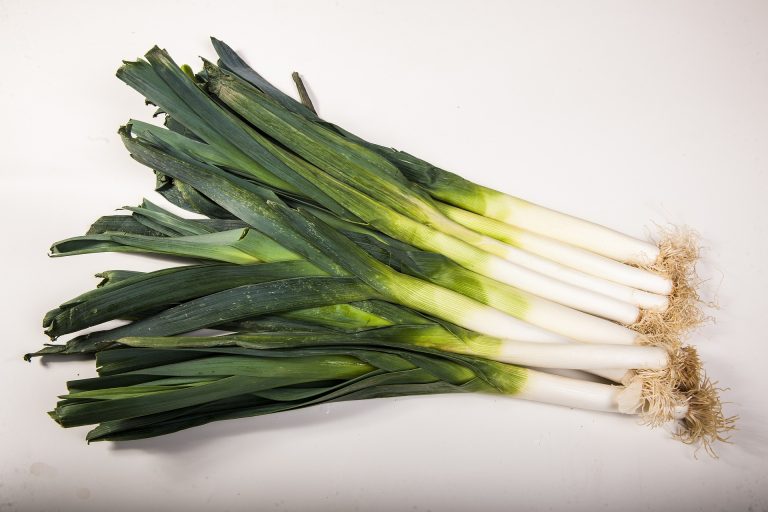Leeks: Botanical Insights, Nutritional Benefits, Culinary Uses, and Health Implications
Introduction
Leeks, scientifically known as Allium ampeloprasum var. porrum, are versatile vegetables appreciated globally for their mild onion-like flavor and culinary versatility. Belonging to the same family as onions and garlic, leeks have been cultivated for centuries and play a significant role in various culinary traditions. Beyond their culinary appeal, leeks offer numerous health benefits due to their rich nutritional profile. This article explores the botanical characteristics, nutritional composition, cultivation practices, culinary uses, health benefits, and cultural significance of leeks, highlighting their importance in both gastronomy and dietary health.

Botanical Characteristics and Varieties
Leeks are biennial plants characterized by long, cylindrical stalks composed of tightly packed leaf sheaths. Unlike onions and garlic, leeks do not form bulbs but instead develop a thickened base and grow in elongated layers. They are known for their mild, sweet flavor and tender texture, making them a versatile ingredient in various dishes.
There are several varieties of leeks cultivated worldwide, each differing slightly in size, shape, and flavor:
- American Flag: Common in North America, known for its uniform size and mild taste.
- Musselburgh: Originating from Scotland, prized for its winter hardiness and robust growth.
- Giant Bulgarian: Noted for its large size and vigorous growth, popular in culinary competitions.
Leeks thrive in cool climates with well-drained, fertile soil and are typically grown as a biennial crop, sown in spring for harvest the following year. They are tolerant of frost and can be cultivated in a variety of regions, contributing to their widespread availability and culinary versatility.
Nutritional Composition and Health Benefits
Leeks are nutritionally dense vegetables, offering a range of vitamins, minerals, and beneficial compounds that support overall health:
- Vitamin K: Essential for blood clotting and bone health.
- Vitamin C: An antioxidant that boosts immune function and aids in collagen production.
- Folate: They are important for DNA synthesis and division of cell.
- Potassium: Helps regulate blood pressure and fluid balance.
- Antioxidants: Including flavonoids and polyphenols, which protect cells from oxidative damage.
The sulfur-containing compounds in leeks, such as allicin, contribute to their potential health benefits, including antimicrobial and anti-inflammatory properties. Regular consumption of leeks is associated with reduced risks of cardiovascular disease, certain cancers, and chronic inflammatory conditions.

Cultivation Practices
Cultivating leeks requires careful attention to soil preparation, planting techniques, and maintenance practices to ensure optimal growth and yield. Key considerations include:
- Soil: Leeks prefer fertile, well-drained soil with a pH range of 6.0 to 7.0.
- Planting: Seeds are typically sown indoors in early spring and transplanted into the garden once they reach a suitable size.
- Spacing and Mulching: Proper spacing allows for ample growth, while mulching conserves moisture and suppresses weeds.
- Blanching: This process involves gradually covering the lower portion of leek plants to encourage tender, white stems and a milder flavor.
Culinary Uses and Gastronomic Appeal
Leeks are valued in culinary traditions worldwide for their delicate flavor and versatility in cooking:
- Raw: Enjoyed in salads for their crisp texture and mild sweetness.
- Cooked: Sautéed, roasted, or braised to enhance their natural sweetness and aroma.
- Soups and Stews: A key ingredient in hearty dishes like potato-leek soup and braised meats.
- Quiches and Tarts: Adds depth of flavor and a silky texture to savory pastries.
In French cuisine, leeks are prominent in dishes such as vichyssoise (a chilled potato and leek soup) and quiche Lorraine, showcasing their ability to elevate both simple and elaborate recipes. Mediterranean and Asian cuisines also feature leeks in soups, stir-fries, and seafood dishes, highlighting their adaptability and culinary appeal.

Health Implications and Nutritional Significance
Beyond their culinary uses, leeks offer notable health benefits due to their nutrient-rich composition:
- Heart Health: Potassium and folate support cardiovascular function and blood pressure regulation.
- Immune Support: Vitamin C enhances immune response and protects against infections.
- Bone Health: Vitamin K contributes to bone density and calcium absorption.
- Antioxidant Properties: Flavonoids and polyphenols help reduce inflammation and oxidative stress.
Incorporating leeks into a balanced diet promotes overall health and well-being, contributing to disease prevention and management. Their low-calorie, high-fiber content also supports weight management and digestive health, making them a valuable addition to healthy eating plans.
Cultural Significance and Culinary Trends
Leeks hold cultural significance in various cuisines and culinary traditions, reflecting their versatility and adaptability in global gastronomy. From traditional European dishes to modern fusion cuisine, leeks continue to inspire creativity among chefs and home cooks alike.
In recent years, there has been a growing interest in heirloom and specialty varieties of leeks, driven by consumer demand for unique flavors and sustainable agricultural practices. Farmers’ markets, specialty grocery stores, and farm-to-table restaurants increasingly feature locally grown leeks, promoting biodiversity and supporting local economies.

Conclusion
Leeks, with their mild flavor, nutritional richness, and culinary versatility, occupy a unique place in global cuisine and dietary health. From their botanical origins to their diverse culinary uses and health benefits, leeks continue to captivate food enthusiasts and nutrition experts alike. By embracing their cultural heritage and nutritional significance, leeks contribute to a sustainable and flavorful culinary landscape that celebrates both tradition and innovation.
This comprehensive exploration of leeks underscores their botanical diversity, nutritional benefits, culinary versatility, and cultural importance, highlighting their role in promoting health-conscious eating and culinary excellence worldwide.

